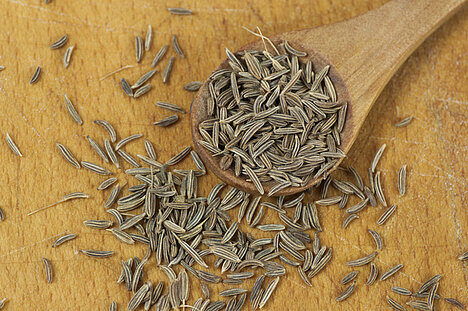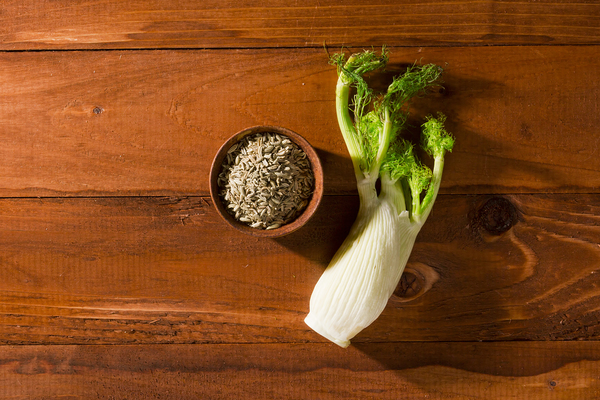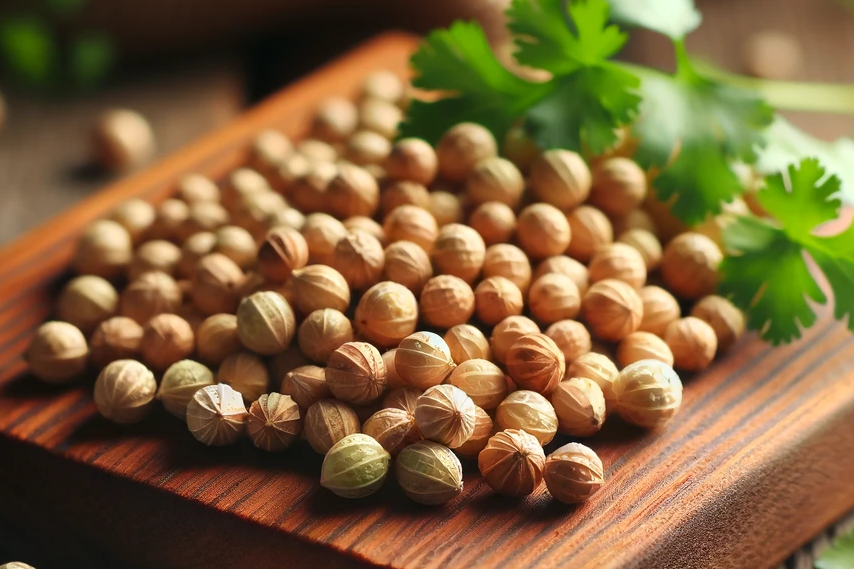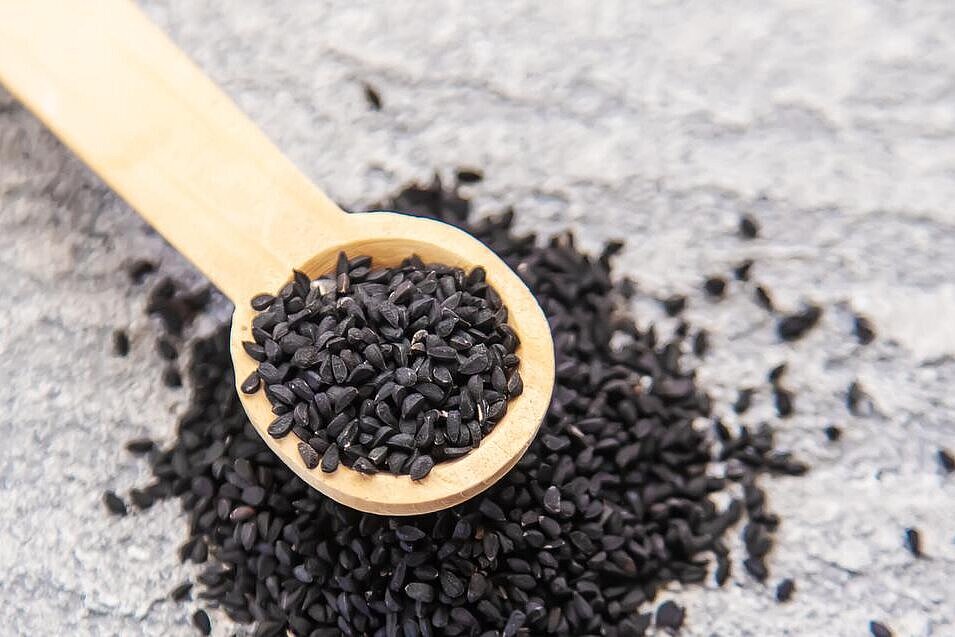Caraway seeds

Caraway is a popular spice that is not only used in the kitchen but also as a household remedy. Caraway has many positive properties for the health of humans and dogs. In this article, you'll find out what caraway is, how it works and what you should look out for if you want to give your dog caraway.
What is caraway?
Caraway (Carum carvi) is a plant from the umbellifer family, which also includes fennel, aniseed, coriander and carrots. Caraway grows on roadsides and meadows and has white to pink flowers that bloom from May to July. The ripe seeds are used as a spice and have an intense, slightly bitter taste.
Caraway is one of the oldest known spices and was already valued in ancient Egypt, Greece and Rome. It was not only used to flavor food, but also as a remedy for digestive problems, coughs, colds and lactostasis.
How does caraway affect dogs?
- Caraway contains essential oils,which have an antispasmodic and flatulent effect.This meansthat caraway relaxes the muscles in the gastrointestinal tract and reduces gas formation.This means that caraway can help dogssuffering from flatulence,bloating or stomach pain.
- Caraway also stimulates blood flow to the mucous membranes and inhibits the growth of harmful microorganisms in the intestines.This promotes healthy digestion and strengthens the immune system.
- Caraway can also stimulate the appetite and promote milk production in lactating bitches.
How can I give my dog caraway?
There are various ways to give your dog caraway. You can sprinkle a few whole or ground caraway seeds over his food or make him a caraway tea. To do this, pour a teaspoon of caraway seeds over a cup of boiling water and leave to infuse for about ten minutes. Then pour the tea through a sieve and give it to your dog to drink lukewarm or mix it into his food.
You can also buy ready-made food powder with ground caraway and dose it according to the instructions.
It is important that you do not exceed the recommended daily dose. Depending on the size of the dog, this is 0.5 to 2 grams of caraway per day. Too much caraway can lead to stomach irritation or allergic reactions.
Are there any risks or side effects when giving caraway?
Caraway is generally well tolerated by dogs and has no serious side effects. However, you should bear a few points in mind before giving your dog caraway:
- Caraway can lower blood sugar levels. If your dog has diabetes or is taking medication to lower blood sugar, you should speak to your vet beforehand.
- Caraway can affect blood clotting. If your dog is taking blood-thinning medication or has a blood clotting disorder, you should also speak to your vet beforehand.
- Caraway can trigger allergic reactions. If your dog is sensitive to caraway or shows signs of an allergy, such as a rash, itching, swelling or difficulty breathing, you should stop giving caraway immediately and consult your vet.
- Caraway may interact with other herbs or medications. If your dog is receiving other herbal or synthetic remedies, you should find out whether there may be any interactions.
Caraway is a useful spice and home remedy for dogs that can help with digestive problems, flatulence, loss of appetite and milk stasis. Caraway is usually well tolerated, but you should observe the correct dosage and watch out for possible risks or side effects.
If you notice any signs of hypersensitivity or poisoning in your dog, you should see your vet immediately. We are not a substitute for a vet, but we try to be as accurate as possible. Every dog reacts differently and we recommend you get a second opinion or consult your vet if in doubt.
Stay healthy and take good care of your four-legged friend!😊
Similar to Caraway seeds
Fennel seeds have a number of positive properties that dogs can also benefit from. On the one hand, they contain many nutrients such as iron, calcium, magnesium, vitamin C and fiber. They also have...
Anise seeds have an antispasmodic, expectorant and digestive effect. They can help to relieve flatulence, bloating and gastrointestinal complaints in dogs. They can also stimulate the appetite and...
Coriander seeds are the dried fruits of the coriander plant, also known as Chinese parsley or cilantro. The plant belongs to the umbellifer family and is related to carrots, fennel and celery. The...
Black cumin (Nigella sativa) belongs to the buttercup family and has nothing to do with caraway or cumin, which we know as spices. The plant has blue or white flowers and produces small black seeds...



